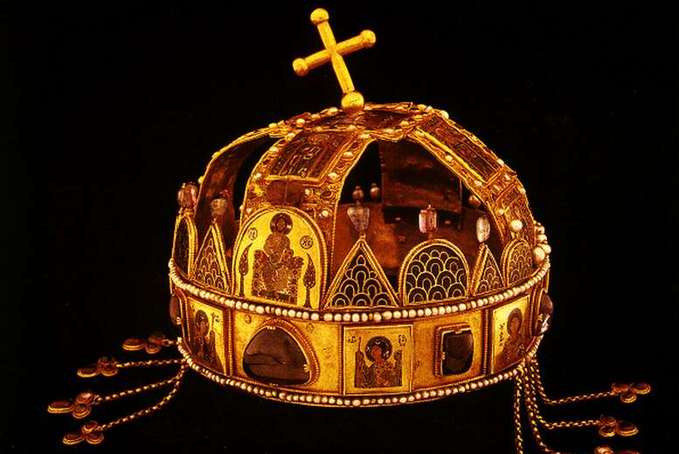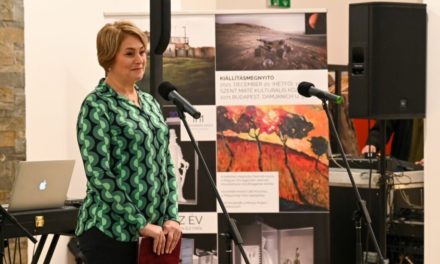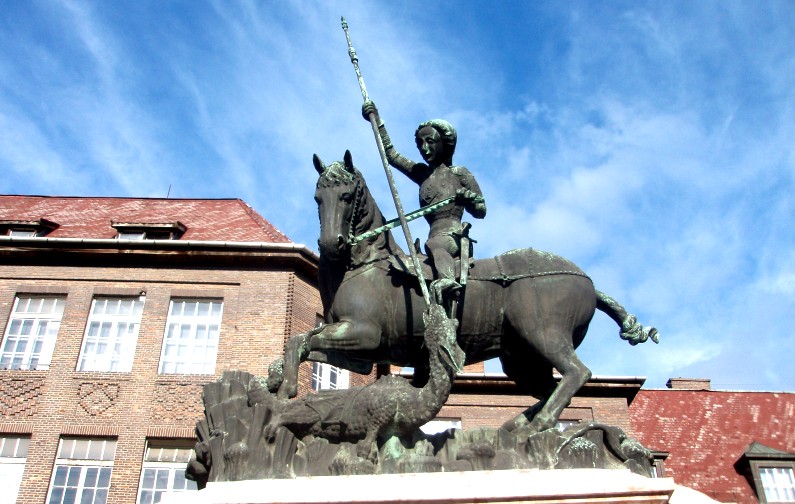József Mindszenty, the last Hungarian prince-primate, did not recognize the systems created illegally by the German and then the Soviet occupation, and based on a conscious assessment of the situation, he wanted to enforce his public law and constitutional role, which he fulfilled as prince-primate.
The secret of Mindszenty's life story, his public role, and his decades-long drag-out lies in his public law role in a decisive way, so much so that the difficulties and delays in his beatification must be seen in connection with his public law situation, which is difficult for outsiders to understand, and the role he consciously assumed accordingly.
Mindszenty writes in his memoirs:
"Esztergom is a subtle and human manifestation of the medieval Christian conception of the state, whose world counterpart is the duality of pope and emperor. The Hungarian embodiment of the idea is the king and the archbishop of Esztergom. The primate crowns the king with the Saint Stephen . Only from this moment will he be the head, the king of the nation. Coronation has had a public law significance in our country since the 13th century. The Holy Crown is the source of all rights and powers. The whole nation, the crowned king and his people, make up the body of the Holy Crown. The Holy Crown unites the king and the nation; and the source of national sovereignty is the Holy Crown.
Obviously, the right of coronation made the archbishop of Esztergom the first among public dignitaries. He is often the king's deputy in his absence. The king asks for his advice on national affairs. If the king has sinned against the constitution, then the Archbishop of Esztergom has the duty to warn him to respect the constitution, to demand it from him. We know of historical situations when the archbishops of Esztergom accepted serious disadvantages and even imprisonment while fulfilling their duty. Lukács Bánfy, Jób, Róbert and Lodomér defended constitutional rights against royal excesses. But also later, e.g. Against Zsigmond against Mátyás, János Vitéz, against György Lippay and György Széchenyi , II. Against József , József Batthyány , or even in modern times against József Ferenc János Scitovszky also defended the nation's interests. The whole nation, Catholics and people of other religions, expected this from them due to their position under public law.
The dignity of primate attached to the person of the Archbishop of Esztergom, which is also the capstone of the hierarchy of the Hungarian Catholic Church, is the only office in our country in which church and state powers are combined. This constitutional authority of the Hungarian primates remained intact even after Article I of the 1920 law, which describes the rights of the governor replacing the king.
Just a few years before my inauguration, Júsztinián Serédi , formulated his position on this matter in a statement as follows:
,,The prince-primate, as the first ensign, is directly next to the king and the head of state, and therefore the very first public-law dignity, is guaranteed in our laws created since King St. István... The double dignity of the prince-primate means a very heavy and responsible job in both respects, so that for him he must die so that he can live and work for the benefit of the Hungarian Catholic Church and the Hungarian homeland.”
This is one of the most beautiful additions to the doctrine of the Holy Crown and the Hungarian high priesthood and civil law high office.
He mentions in the same place that "both the people of the country and the provisional government considered the powers of the Hungarian primates defined in the constitution to be intact". He refers to the fact that when he responded to the congratulatory telegram sent by the Prime Minister of the Provisional Government at the inauguration of the Primate, and in the telegram referred to the dignity of Hungarian Primates under public law, "the government, the Provisional National Assembly, the parties, the press and the public opinion of the entire country took note of that." And my telegram said: "Thank you very much for your warm garotulation." The country's first public-law dignity is at his disposal for his country." He then adds that in this telegram and in his inauguration speech he only emphasized what the nation as a whole expected of me in 1945, that I am ready to defend the interests of my Hungarian people and the civil and human freedoms guaranteed by the constitution.
In line with his characteristic bona fide world view and character, the absence of tangible evidence for his previously cited findings guided by his characteristic public law idealism, instead of the lack of support from the acts of the temporary national assembly, he interpreted the silence – unfortunately wrongly – as an understanding acknowledgment. In his chair-taking speech given at the inauguration of the Archbishop, he talks about the broken thread of legal continuity, and expresses his hope that "when the bad luck is over, the sanity of the nation will build a bridge over the vortex, like the Pontifex as a bridge-builder and for more than 900 years, you archbishops, the country His Highness will also be there to restore and continue our common life."
His biographers and interpreters of his life cannot be far from the assumption that his reference to his role in public law was part of some alien, pretentious behavior, an anachronism that should be tactfully ignored. They can think this based on his own statements that the Cardinal-Archbishop of Esztergom is the country's first standard-bearer, which his predecessor, Prince-Primate Júsztinián Serédi, and Mindszenty also claimed. However, in his protests against the "introduction" of the Republic, he did not refer to the office of "flag master", but rather emphasized his public law role. - The statement is accurate in the sense that during the time of Prince Serédi's office, there was no other ensign or national dignitary who would have preceded the public law rank and status of Cardinal Prince-Primate.
The country's standard-bearers (country flag-bearer, grand-flag bearer) were traditionally the palatine, the country judge, the Croatian Slavonic Dalmatian, the master tárnok (chief tárnok), the chancellor (formerly the voivode of Transylvania, ispan of Bratislava and Temes). A paper published in 2012 says the following about the prince primate:
"The public rights of the Hungarian primate go back to the Middle Ages. His most ancient right was the coronation and swearing in of the Hungarian king. He was considered the country's first ensign, in the Middle Ages II. András ' campaign in the Holy Land and Sigismund of Luxemburg's longer stay abroad (1414-19), he actually replaced the king."
The formula "He counted" expresses that he was a standard-bearer not formally, according to a fixed hierarchy. The more recent textbooks ( Móric Tomcsányi, József Bölöny ) do not mention the prince-primate's current status as ensign, but Bölöny mentions the chancellor among the grand ensigns in the XIII. in connection with the century. According to the historical constitution, however, the prince-primate is – in the event of the king's and all other dignitaries being obstructed or their office vacant – the current apostolic Hungarian king, i.e. the deputy of the actual, legal head of state, homo regius.
The study continues like this: "He was the king's chief and secret chancellor, and by virtue of this position he was one of the ordinary judges of the country. He personally exercised this right on the seven-person board, and appointed two sitters to the royal board. He also held the position of Chief Inspector of the Mint. He was the keeper of the royal double seal. He was a member of the governor's council. He participated in the national assemblies. The Parliament II. Lipót ascended the throne, he reaffirmed the rights and privileges of the primate-archbishop. Since 1270 he was the hereditary lord of Esztergom county. Maria Theresa . Among his privileges was that he did not have to take the oath in person, but could do so through his officer. They had nobles until the 19th century. The German-Roman Imperial Duke title from 1714, sat. Károly's donation. When filling the episcopal seats, the Hungarian court chancellery also asked the primate who his candidates were. By the 20th century, only some of these privileges were significant. Few were enshrined in law, most of them lived as customary law.
When the Second Chamber of the National Assembly, the Upper House, was re-established after the First World War, the Prince-Primate also became a member of it, based on his dignity. It was customary for prime ministers and ministers to inform the prince-primate of their appointment and pay him an introductory visit. The primate had the right to communicate with the head of state even without the government, and they tried to maintain this right even in the Horthy era. In crisis situations, the governor sought the opinion of the prince-primate. this is how it happened, among other things, during the government crisis of 1932. At that time, Serédi explained, without mentioning persons or names, the principles that, in his opinion, should be followed in the composition of the government and in the manner and direction of governance.
It was customary for the government to consult with the prince-primate in advance about legislative proposals affecting the church."
Author: Zsolt Zétényi













